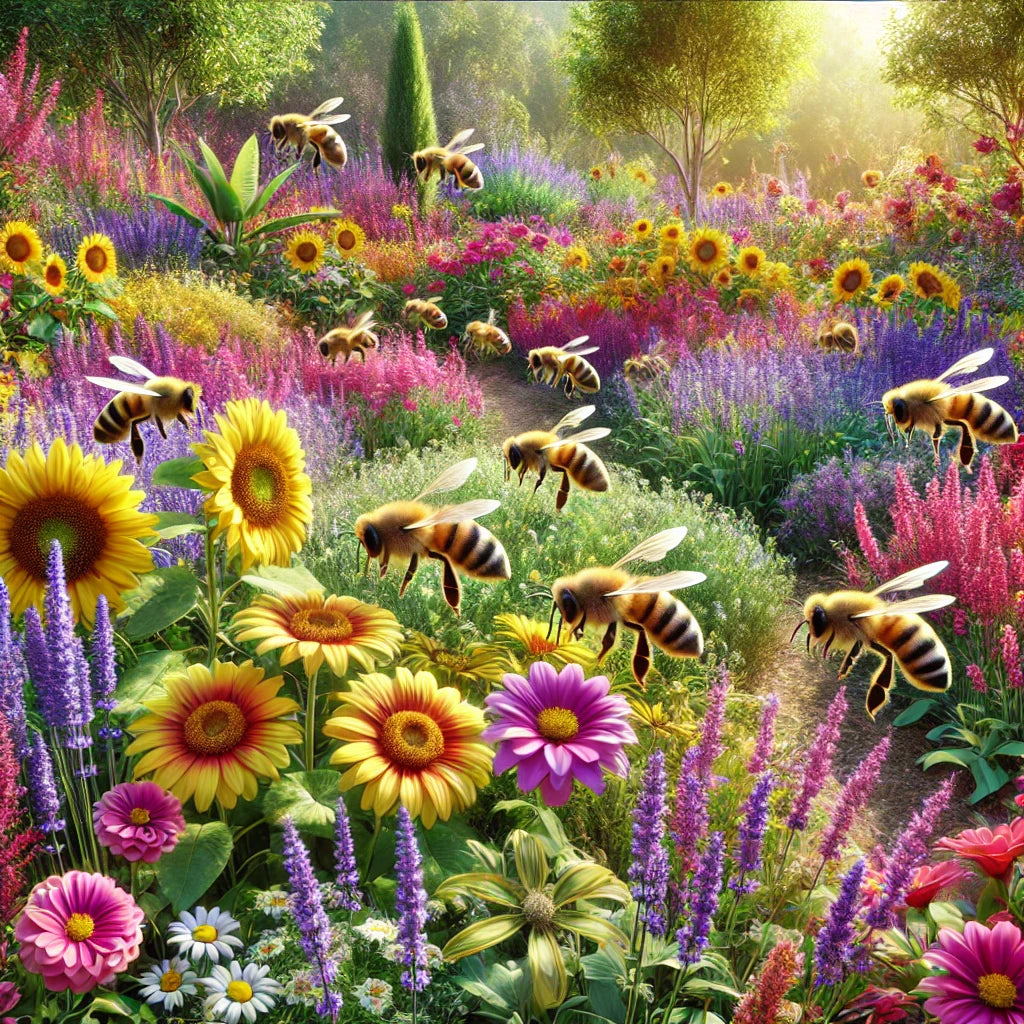If you’ve been hearing a lot about bees and pollinators lately, it’s not just a trend—it’s crucial for the health of our planet. Pollinators like bees are responsible for helping over 75% of the world's flowering plants reproduce. This includes a huge portion of the crops we rely on for food. In fact, bees are among the most important pollinators in the agricultural sector, which makes their role irreplaceable.
Pollinators contribute to biodiversity by ensuring plants grow, providing food for countless species, and keeping ecosystems balanced. So, when you hear about efforts to save the bees, understand that it’s not just about honey production—it's about the survival of entire ecosystems. Supporting pollinators is directly linked to environmental health.
The Essential Role of Bees in Pollination
Pollination is a process that most plants need to grow and reproduce. Bees, especially honey bees, are incredibly efficient at this. They gather nectar for food and, in doing so, move pollen from flower to flower, enabling the plants to fertilize and produce fruit or seeds. Without bees, many of our favorite foods—like apples, almonds, and strawberries—would be much scarcer and more expensive.
Bees are known for their teamwork, working in colonies to achieve this massive task. They visit thousands of flowers in a day, making them indispensable in farming. When people talk about bees in relation to agriculture, they often refer to the life cycle of bees, understanding that different stages contribute to this pollination process.
Why Are Honeybees So Vital to Agriculture?
You might wonder why honey bees, in particular, are singled out when discussing pollination. It’s because honey bees are among the few species that pollinate on a large scale. They’re vital for commercial farming, as they can be transported to fields and orchards when crops are in bloom, ensuring mass pollination. This efficient process is part of why honeybees are considered the backbone of agricultural pollination.
Beekeepers also play a role in this, understanding how to start a bee farm to support local agriculture and ecosystems. With declining bee populations, efforts to save and cultivate bees have become critical.
The Importance of Pollinators Beyond Bees
While bees get a lot of attention, other pollinators are important too—think butterflies, birds, and even bats. Each of these creatures helps plants reproduce, contributing to the diversity of our food supply. However, bees stand out because of their sheer impact and adaptability, especially in farming environments.
If you’re looking to boost pollination in your own garden or farm, consider tools like a bee trap attractant to bring in more bees. This simple step can encourage bees to stick around and keep your crops growing healthily.
Are We Facing a Pollination Crisis?
Sadly, we’re currently seeing a decline in pollinator populations. The reasons are varied—climate change, pesticide use, habitat loss, and diseases are all contributing factors. When we lose pollinators, it can lead to crop failure, reduced biodiversity, and increased food prices.
That’s why efforts to promote pollinator health—such as improving the habitats of honey bee swarms and educating farmers—are key. Supporting organizations and buying products that promote bee health can make a big difference.
The Buzz Around Pollinators and How You Can Help
Pollinators are facing a lot of challenges, but there’s hope. Simple actions, like planting pollinator-friendly gardens and using less harmful chemicals, can create a big impact. Pollinators need clean, pesticide-free environments to thrive, so always be mindful of how your actions affect these essential creatures.
If you’re passionate about protecting pollinators, products like those offered by Swarm Commander can help you foster a healthy environment for bees and other pollinators. Additionally, making conscious choices in your own garden by using beetle traps for beehives or supporting local beekeepers is an easy way to contribute.
Elevate Your Beekeeping with Swarm Commander
Understanding the hype about bees and pollinators is about recognizing their crucial role in both agriculture and biodiversity. They are key to our food supply and the health of ecosystems worldwide. From the everyday gardener to the large-scale farmer, everyone can make small changes to protect pollinators and, in turn, safeguard our planet's future.
Unlock the full potential of your beekeeping experience with Swarm Commander! From bee trap attractants to protective gear, Swarm Commander offers everything you need to manage bees effectively. Whether you're looking to attract swarms or protect your hive, our range of products ensures that you have the tools to thrive in your beekeeping journey.
Frequently Asked Questions About Bees as Pollinators
Q1. How can I attract more pollinators to my garden?
Plant a diverse range of flowering plants that bloom at different times, providing a steady food source. Avoid pesticides, and consider tools like a bee trap attractant to encourage bees to visit.
Q2. Do all pollinators contribute equally to agriculture?
No, honey bees are especially efficient pollinators, particularly in large-scale farming. However, other insects, birds, and even mammals contribute to pollination in different ecosystems.
Q3. What is the life cycle of bees, and why is it important?
The Life cycle of bees includes stages like egg, larva, pupa, and adult. Each stage plays a role in the health and survival of bee colonies, which directly impacts pollination.
Q4. Can starting a bee farm help with the pollination crisis?
Yes, learning how to start a bee farm and managing bees can support local ecosystems and agriculture, contributing positively to the pollinator population.
Q5. Are honeybees essential for the pollination of vegetables?
Yes, honeybees and other pollinators are crucial for the pollination of many vegetables. Their activity helps produce the fruits and vegetables we rely on for food.



